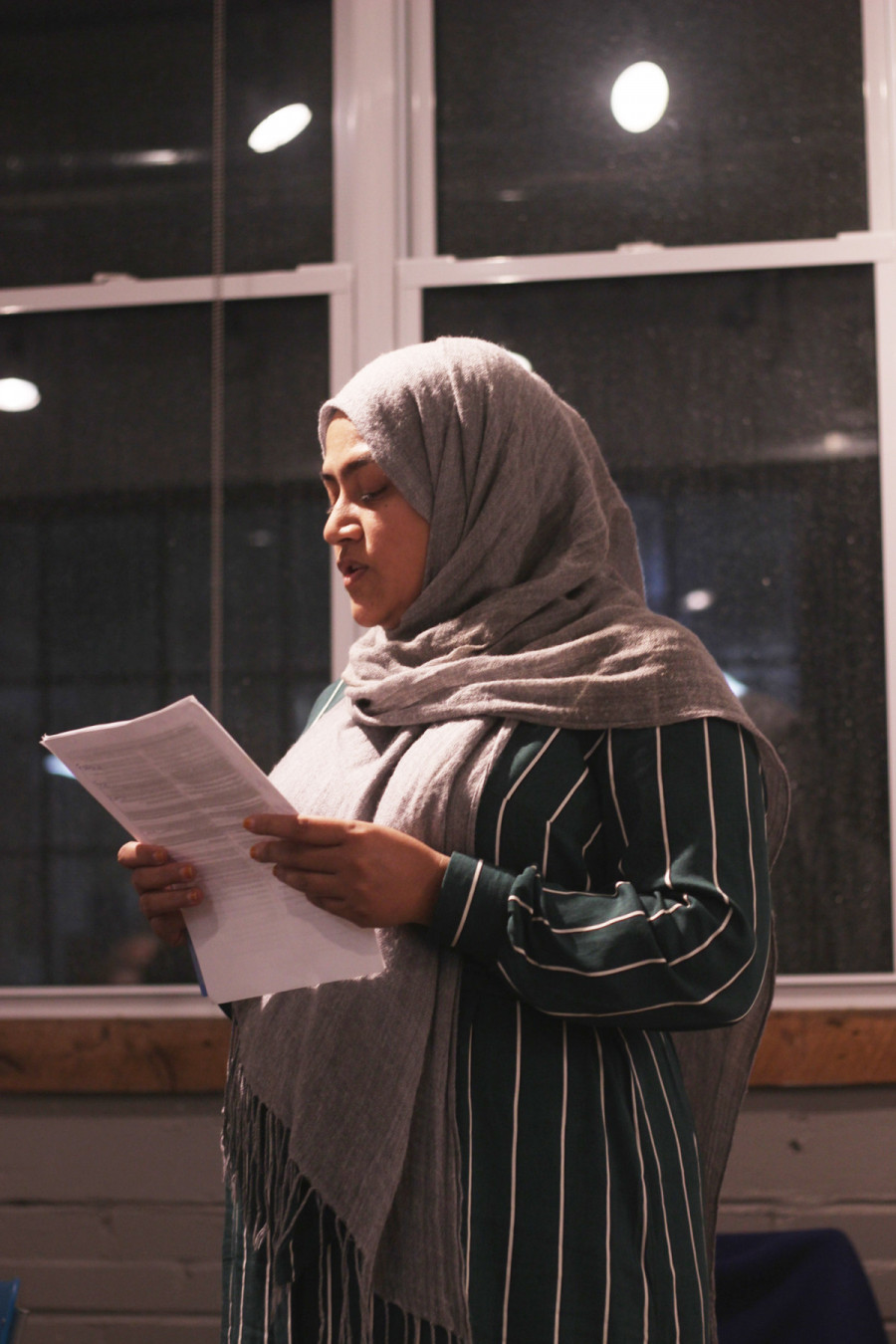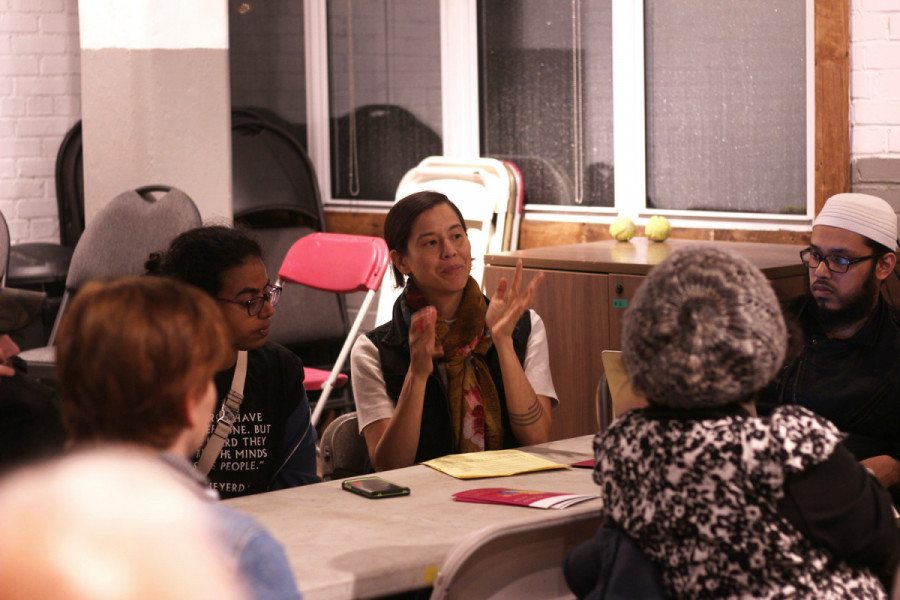Advocates and Allies Gather in Pointe-Saint-Charles to Break Down Racial and Religious Discrimination
University of the Streets Café Initiates Discussion to Understand the Root of Islamophobia and Xenophobia in Quebec.
Earlier this month, three guest speakers continued the ongoing conversation about social exclusion and secularism in Quebec’s communities in the hopes of answering the big question: how can we fight Islamophobia in our communities?
University of the Streets Café, from Concordia’s Office of Community Engagement, hosted the discussion at Bâtiment 7, a local gathering spot for the Pointe-Saint-Charles’ community. There, Kat Ying, Jennifer Guyver, and Fatima Ahmad started a conversion they hope will continue beyond the four walls of the cafe.
“We anchor it in community centres around Montreal,” said Alex Megelas, Programs and Communications Coordinator at the OCE, aiming to bring people together to discuss current political topics that affect Montreal’s communities.
“Essentially, people who make these laws and drive the narrative of Islamophobia are power-holders and so it’s through shedding these illusionary differences that we can create something this is strong,” he said.
Combating these issues, he explained, comes down to mobilizing communities to advocate and become allies, even if they do not personally feel affected.
Kat Ying, a third-year law student, says allies—those who don’t identify with a group they align themselves with—must question the role of moral outrage. “We have to be careful that our personal moral outrage as allies does not lead our actions […] because this can be very quickly turned into white saviorism.”
Inevitably, the discussion shifted to Bill 21, its intentions and impacts on religious minorities in Quebec.
Kat Ying argued the bill “which is clearly an Islamophobic law, is directly at odds with the entire spirit of the Charter of Rights and Freedoms.”
She continued to say that the Charter’s original writers never intended the notwithstanding clause to be used for an issue like this one.
The conversation took many turns, and the almost 30 people gathered tried to understand the root of the issue. Where does the discriminatory behaviour—xenophobia, racism, or Islamophobia, however you may want to label it—come from?
Jennifer Guyver, PhD candidate in the School of Religious Studies at McGill University, says Islamophobia stems from many roots and that Bill 21 does not target Muslims specifically. However, it created a divide within society: those in secular passing and those in racial passing.
Jimmy Ung, an attendee, believes part of the French Canadian Quebecers’ reaction comes from personal unresolved and unreconciled conflict.
“They are experiencing a form of collective trauma they haven’t dealt with yet, and that collective trauma comes from their own relationship with religion with Catholicism,” he said.
During open discussion period, many veiled Muslim women defied the prejudice that men and husbands force them to cover themselves.
For Ahmad, fourth-year elementary education student at McGill University, it was a personal and conscious decision. Born and raised in Montreal, Ahmad only experienced Islamophobia after she began wearing the face veil, called niqab.

Before beginning university, she only wore the hijab and hadn’t experienced discrimination.
“Due to my spiritual journey, I decided to wear the niqab and that’s when I realized that people weren’t as understanding, or the reaction was totally different.”
She was shocked by the treatment she received since she believed that her beliefs and self-presentation were accepted by those around her, as they had been all her life.
It all boils down to how the laws translate from paper to reality, how they affect lives. Ying said, “Some bodies are able to do things that other bodies are not able to do.”






_600_375_90_s_c1.jpg)